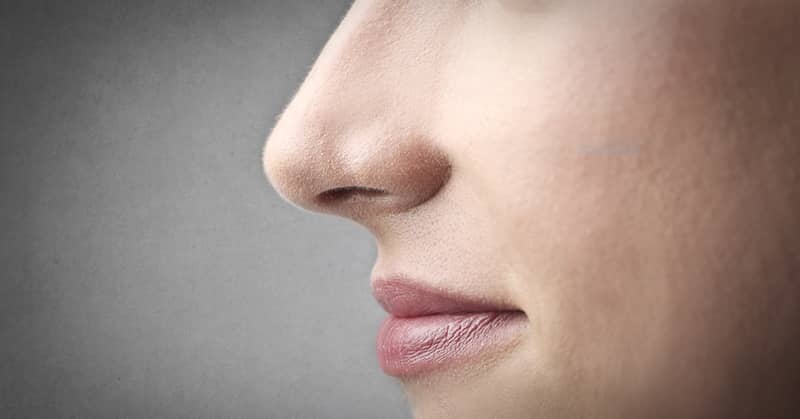
What if the secret to predicting your longevity wasn’t hidden in your DNA or your medical chart—but right under your nose? Literally. While most of us take our sense of smell for granted, especially as we age, scientists now say that a faltering sniffer may be one of the earliest—and most alarming—red flags of frailty and even early death. Forget memory tests and blood pressure checks—what you can’t smell might hurt you more than you think.
Key Takeaways
-
Loss of smell is more than a nuisance—it’s a predictor of frailty, which is strongly associated with aging, disability, and even early death.
-
Simple smell tests may become valuable tools in routine health screenings to detect early signs of decline and trigger preventive action.
-
Improving nutrition and exercise could potentially reverse frailty and support your sense of smell and overall health in aging adults.
Your Nose Knows: The Smell Test That Predicts Frailty
The most common problems affecting the eyes and ears can be corrected with lenses and hearing aids. But no implement can give a leg up to another important sense that can fade with aging. And that’s our sense of smell.
As we reported here last year, cognitive decline is already linked to a failing sniffer. Now, a new study shows flunking a smell test is linked to more than just dementia. It also predicts impending frailty and death.
A stuffy nose from a cold or flu will diminish our sense of smell, but it quickly bounces back once we’ve healed from the illness. Apart from these occasions, our ability to smell is something we largely take for granted.
This changed big time with COVID-19, when 40 to 50 percent of people infected with the coronavirus reported loss of smell as one of their symptoms, and more than five percent of them never recovered their full range of smell following infection.
Until the pandemic, suffering from a waning ability to smell was seen as an early warning sign of Alzheimer's and Parkinson's disease. Now, with the latest study from Johns Hopkins University, we have even more to be concerned about.
Loss of smell linked to frailty
Their study looked at the link between smell impairment and frailty, which is an indicator of more rapid aging and is seen as highly predictive of future disability and impending mortality.
The researchers enrolled 1,160 adults with an average age of 76. The team used a frailty index that examines five markers: weight loss, exhaustion, weakness, slow walking speed, and low physical activity.
To judge odor identification and sensitivity, the researchers asked the volunteers to name each of five scents. They were also exposed to six other scents to see if they were able to detect them. Researchers then matched the results to the subject’s score on the frailty index.
The researchers discovered that the worse the sense of smell, the frailer the participant. On the plus side, for every one-point increase in both olfactory identification and sensitivity scores, there was a significant reduction in frailty status.
Sense of smell a biomarker for longevity
The results suggest that loss of smell can be a measurable biomarker and potential risk factor for frailty in older adults, while maintaining the ability to smell means better health status, resilience, and longevity.
Although odor identification relies on higher-order cognitive processing to interpret and classify an odor, the simple detection of an odor doesn’t require such processes. This leads the authors to believe the link to frailty lies not just in the brain but also in the nose itself, as explained by senior author Nicholas Rowan.
“We found that both impaired olfactory identification and sensitivity functions are associated with frailty, which is interesting because it shows that it’s not just your aging brain at work here, but it may also be something peripheral, like something at the level of your nose that can predict our impending frailty and death.”
Smell loss is not only serious for our future health, but also has other consequences.
Loss of smell is a serious problem
Dr. Rowan points out that these include loss of appetite, difficulty monitoring personal hygiene, and an inability to detect toxic fumes. In older adults, it’s linked with weight loss, malnutrition, weakness, inadequate personal care, and even potential injuries caused by gas leaks or fires. He thinks that smell tests should become part of routine screening.
“We already do tests to assess how well we can see or hear, and it’s just as easy to conduct a simple smell test that takes only minutes, which could potentially be used as a valuable tool to assess the risk of frailty or unhealthy aging.
“For example, if someone flunks a smell test, then maybe this patient needs to improve their nutrition or undergo a more detailed neurological or medical workup.”
Although he didn’t elaborate on what nutritional changes could improve the sense of smell, and by extension, protect against frailty, Professor John Morley, a world-renowned leader in Geriatrics at Saint Louis University, has explored this issue.
He suggests a diet high in fruits, vegetables, and olive oil to protect against frailty. It should also include a leucine-enriched essential amino acid supplement to enhance muscle strength. He adds that physical frailty “can be reversed in most cases with physical exercise.” I couldn’t agree more.
Summary
Your ability to smell may reveal more about your health than you realize. A new study from Johns Hopkins shows that diminished smell is strongly linked to frailty, cognitive decline, and even early death. While most people only notice smell loss during a cold—or as a strange lingering symptom of COVID-19—ongoing changes in this sense could be a warning sign that something deeper is wrong. Fortunately, routine smell tests and healthy lifestyle choices may help reverse frailty and promote longevity.
Frequently Asked Questions
<Can loss of smell predict frailty or death?
Yes. A Johns Hopkins study found that poor smell identification and sensitivity are strongly linked to frailty and early mortality in older adults.
Is smell loss only related to brain function?
No. Researchers believe the problem may lie in both brain processing and peripheral systems, like the olfactory receptors in the nose.
What other risks are associated with losing your sense of smell?
Smell loss can lead to malnutrition, poor hygiene, and an inability to detect dangers like gas leaks or spoiled food.
Can frailty be reversed?
Yes. Experts recommend a nutrient-rich diet and physical exercise to support muscle strength and overall resilience.
Should smell tests become part of routine health checks?
Researchers suggest they should, as simple tests could identify at-risk individuals early and prompt preventive measures.
